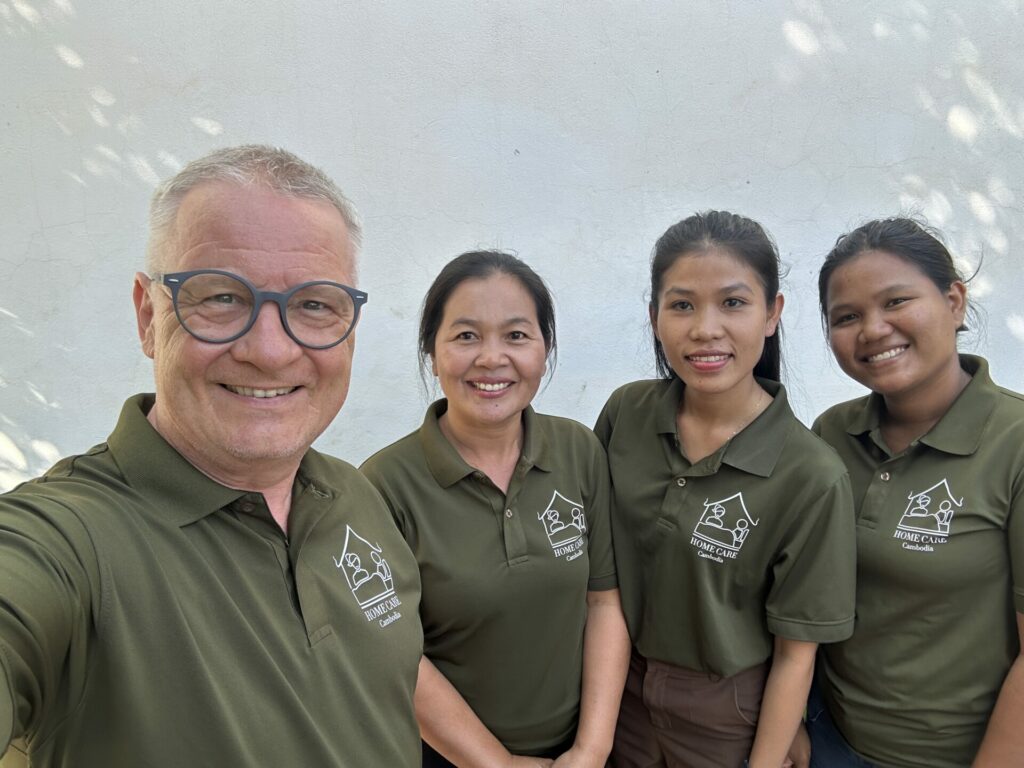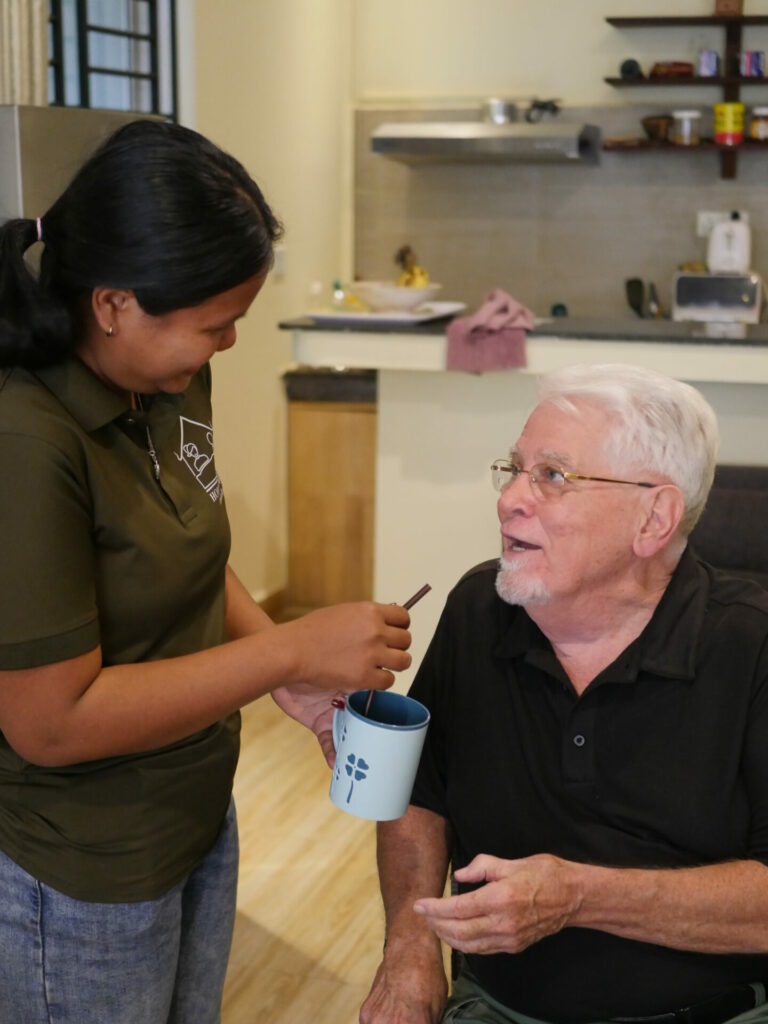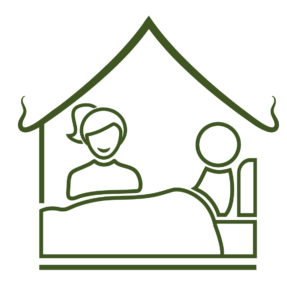
It was in April last year when I started to feel that something important was missing in Cambodia’s healthcare system. Many of my Khmer friends who had elderly or ill parents and grandparents struggled to care for them. One of them, Srey Chan, a close friend from Stoung, had to quit her job—and for a while, leave her own son—just to take care of her mother, who was diagnosed with cancer.
This isn’t unusual in Khmer families. When a family member gets sick, it’s often the wife, daughter, or granddaughter who is expected to step in. In many cases, a young female relative is brought in to act as a full-time caregiver—24/7—without any training or experience.
Care is more than medical treatment
Back in Germany, my aunt once ran a company that provided trained nurses. My sister-in-law is a manager at a care service for the elderly. And I personally cared for my father when he was sick with cancer. That’s when I learned an important lesson: beyond the excellent work of doctors and nurses, patients also need time, compassion, and attention. Care is more than medical treatment—it’s about conversations, going for a walk, reading a story, but also providing essential professional support like bathing, feeding, light physiotherapy, and massage.
When I spoke with my dear friend Veng Sokchea about this, she immediately said: “I want to work in a service like that.” And so, the idea for Home Care Cambodia was born.
Training and then first customers
It took us a few months to develop a solid plan. In August, I, along with four committed carers, completed a one-month professional training program at Payap University in Thailand. By September, we had officially launched our service. Just one month later, we had our first clients.
Now, one year after those first thoughts, we have three carers who are fully booked, and we are actively looking for new staff. Our clients are happy—and many book us for ongoing monthly care, rather than just hourly visits as we initially expected.

More foreigners want to retire in Siem Reap
We’ve learned a lot along the way. For example, pricing is important, but we found that even local families are willing to pay for professional care when they see its value. They receive regular updates about their loved ones’ well-being and improvements.
Interestingly, Siem Reap is becoming more popular with retirees from abroad—another potential market for us. We’ve already served a few foreign clients and plan to expand further as soon as we find English-speaking staff.
Over the past months, we’ve also built important partnerships: we signed a Memorandum of Understanding with Neak Tep Hospital and now collaborate with Angkor Japan Friendship Hospital, Kravvan Pharmacy, and a local lab.
What’s next? This year, we plan to grow slowly but steadily in Siem Reap while focusing on consolidation and quality improvement. In June, our team will receive updated training from a European caregiving expert to enhance our skills and knowledge.
None of this would have been possible without our incredible team: Veng Sokchea, Yoen Sophy, and Sor Chiva. I am deeply grateful for their dedication and am excited for what the next year will bring.
If you’re interested in caregiving services in Siem Reap, feel free to contact me via LinkedIn, email at info@homecare-cambodia.com, or by phone at +855 15 879 410 (also available on WhatsApp and Telegram).
Thomas Wanhoff, Founder Home Care Cambodia

Leave a Reply